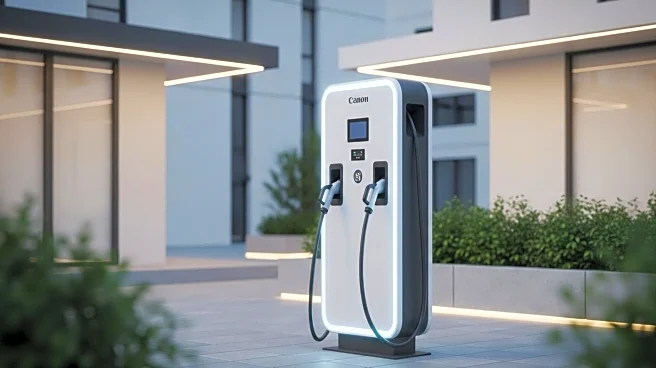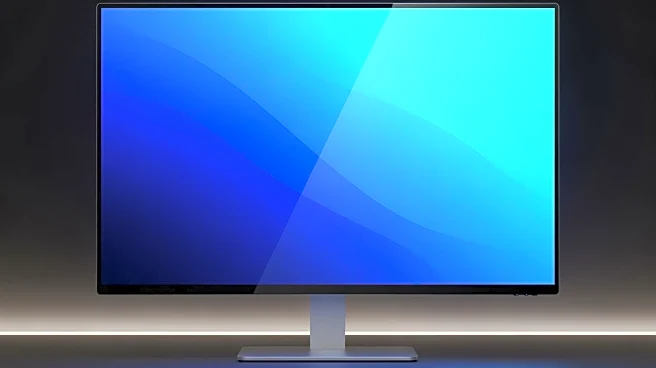What is the story about?
What's Happening?
General Motors and Ford are taking strategic steps to extend the benefits of the $7,500 federal electric vehicle (EV) lease tax credit beyond its scheduled expiration on September 30, 2025. Both automakers have introduced new dealer financing schemes through their captive finance arms. These schemes involve purchasing qualifying EVs from dealers using down payments before the cutoff date, allowing the companies to claim the tax credit. This approach enables them to continue offering the credit in lease deals for several months after the official expiration. This move is part of a broader trend among established automakers to prioritize gasoline vehicles, including hybrids, over increasing EV sales. GM has also idled a factory in Michigan and reduced production shifts in Tennessee as part of this strategic shift.
Why It's Important?
The decision by General Motors and Ford to extend the EV lease tax credit is significant for several reasons. Firstly, it helps maintain the affordability of electric vehicles for consumers, potentially boosting EV adoption despite the expiration of federal incentives. This could have a positive impact on the environment by encouraging the use of cleaner transportation options. Additionally, the move reflects the automakers' strategic focus on balancing their portfolios between traditional gasoline vehicles and electric models. By prioritizing cost reduction and maintaining incentives, GM and Ford aim to remain competitive in a rapidly evolving automotive market. This strategy could influence other automakers to adopt similar measures, affecting the overall direction of the industry.
What's Next?
As the expiration date for the federal EV lease tax credit approaches, General Motors and Ford are likely to continue refining their financing schemes to maximize the benefits for consumers and dealers. The success of these initiatives could prompt other automakers to explore similar strategies, potentially leading to a broader industry shift towards sustaining EV incentives. Additionally, the impact of these measures on EV sales and production will be closely monitored by industry analysts and stakeholders. Policymakers may also consider extending or modifying federal incentives to support the transition to electric vehicles, depending on the effectiveness of these corporate strategies.
Beyond the Headlines
The strategic actions taken by General Motors and Ford highlight the complex dynamics of the automotive industry as it navigates the transition to electric vehicles. While extending the EV lease tax credit offers immediate benefits, it also raises questions about the long-term sustainability of such incentives. The reliance on financing schemes to maintain consumer interest in EVs underscores the challenges automakers face in balancing profitability with environmental goals. Furthermore, these developments may influence public policy discussions on the role of government incentives in promoting clean energy and transportation solutions.















